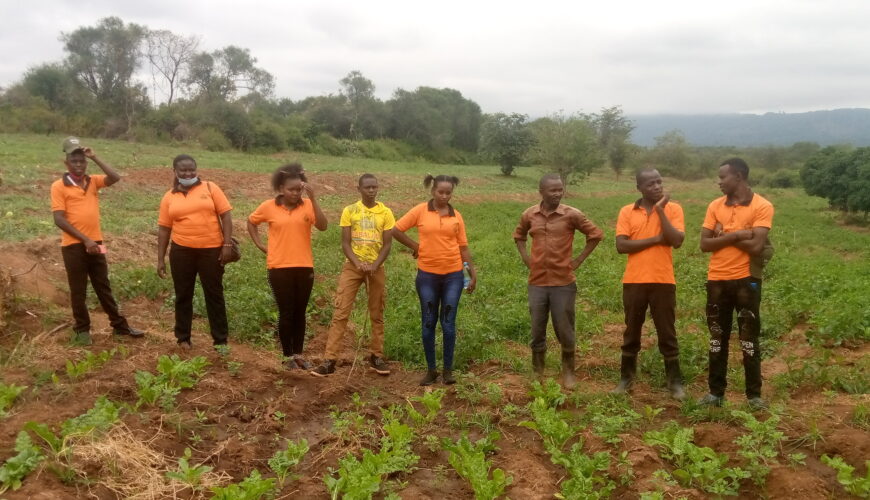Jonathan Mutinda and Ian Mambo are beneficiaries of ENABLE-TAAT in Kenya. After a training and mentorship period of 15 months, they were able to create their own enterprise.
At the beginning of their venture, they leased one-eighth of an acre at Dukuma Dam, Makueni County, where they began planting and selling OFSP and other vegetables. Within a year, their customer base had increased hence the need for an expansion of their business. The team acquired two acres of land for production to meet the demand. Jonathan and Ian have attributed their success to their encounter with ENABLE-TAAT in Kibwezi.
“If it was not for the experience we had with the ENABLE-TAAT in Kibwezi, we could not have started our journey of agripreneurship and doing agriculture as a business. We learnt practical skills like land preparations, making a plan for our businesses, proper record keeping, good agricultural practices and integrated pest control mechanisms. We also learnt a lot on group dynamics and how to deal with various customers,” they said.
According to Elizabeth Muema, ENABLE-TAAT liaison officer in Kenya, “The two youth have displayed great performance in their areas of operation and we all meet monthly to share experiences and updates. We have an incubation center at the University of Nairobi, consisting of 12 graduates split into groups from various disciplines and specialization. Ian and Jonathan are able to help the group with valuable ideas from their own enterprise.”
Shortly after, Jonathan and Ian were inspired to train two other graduate-youth. Since then, the team has focused on transforming other youth groups with their expertise and knowledge.
Currently, they are networking with three more groups who are practicing agripreneurship despite the few challenges they meet as startups. Many of their trainees have shown lots of improvement after getting business advice and mentorship from Ian and Jonathan.
Although they are both graduates of agricultural studies from the University of Nairobi, ENABLE-TAAT introduced them to agribusiness and profit-making. The compact connects youth to the process of agricultural transformation necessary to secure economic prosperity through youth-led agribusinesses.

